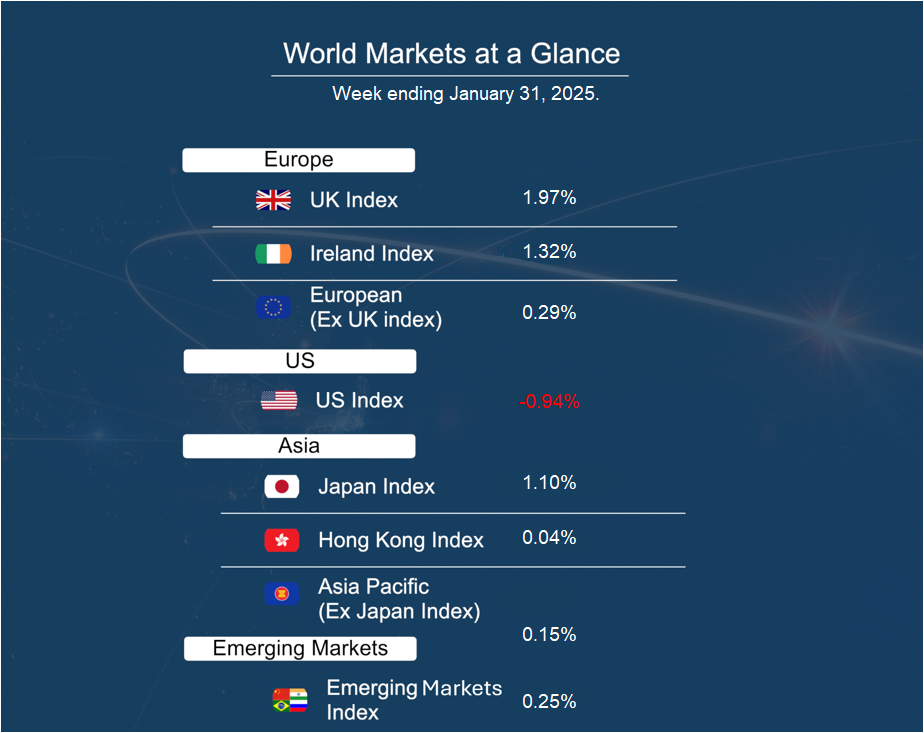In the UK, the FTSE 100 closed the week at a record high, capping off its best monthly gain since November 2022. A weaker pound helped support the index, which includes many multinationals benefiting from overseas revenue.
Over the weekend, President Trump announced that new tariffs would take effect next week, including a 25% duty on goods imported from Mexico and Canada, along with a 10% tariff on Chinese products. In retaliation, Canadian Prime Minister Justin Trudeau revealed plans to impose 25% tariffs on a range of American goods, from beer to household appliances. Mexico, too, vowed to act, considering both tariff and non-tariff measures to safeguard Mexico’s interests. Trump has warned that tariffs on Chinese goods could rise as high as 60% during his campaign, however he has settled on a much lower 10%. In response, China condemned the 10% tariffs, calling them a “serious violation” of World Trade Organization rules. Beijing has also indicated it will take countermeasures to protect its rights, though it has yet to clarify whether these will include new tariffs.
While Trump has not yet indicated his stance on tariffs for European Union goods, a European Commission spokesperson warned that the EU would respond firmly to any partner that imposes “unfair or arbitrary tariffs” on EU products.
It’s important to note that Trump’s tariffs are unlikely be a blanket rate across all goods and may signal the start of broader negotiation talks between the US and its key trading partners. As such, the imposition of these tariffs may not necessarily be a sign of long-term economic isolation but part of a broader effort to reshape global trade dynamics to better align with US interests.
Data wise next week, Chinese manufacturing PMI, Eurozone inflation and the Bank of England’s interest rate decision. US labour market data, such as non-farm payrolls and unemployment.
Kate Mimnagh, Portfolio Economist



